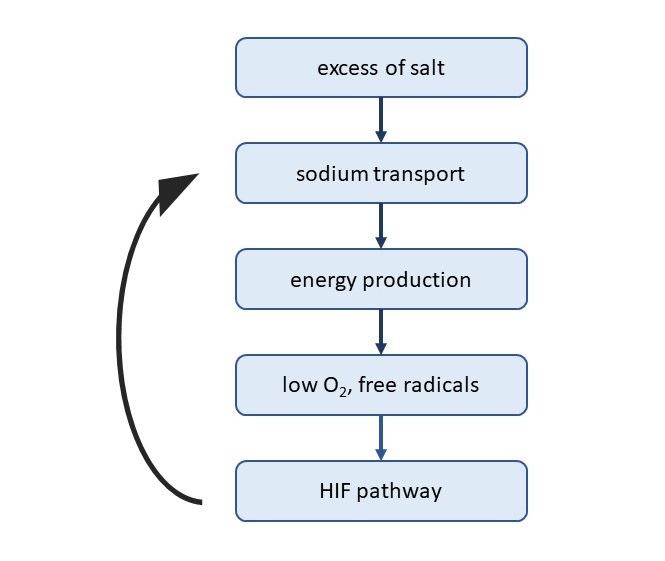How kidneys manage an excess of salt
An important job of our kidneys is to regulate sodium blood levels. When we eat too much salt or sodium, it puts a strain on them and can lead to serious renal dysfunctions. Despite their importance, some of the cellular mechanisms by which an excess of salt does or does not alter kidneys are still poorly understood.
The discovery of a negative feedback loop
In their recent study in the Journal of the American Society of Nephrology, scientists from the laboratory of Prof. Eric Feraille have discovered a protective mechanism by which the kidneys are able to protect themselves from excessive salt consumption. When a large amount of sodium is delivered to the kidneys, cells have to produce extra energy to meet the challenge and transport more sodium. This reduces the amount of oxygen available to the cells and produces free radicals. To prevent these changes from leading to cell damage arising from these modifications, a pathway involved in cellular adaptation to low oxygen conditions, the HIF pathway, is activated. Scientists have demonstrated that activation of this pathway leads to a reduction in sodium transport, which slows down cellular energy production and prevents the system from running out of control, as shown in the Figure below.

A negative feedback loop (black arrow) allows kidney cells to protect themselves from an excessive intake of salt. © UNIGE
21 Oct 2021
